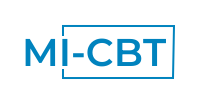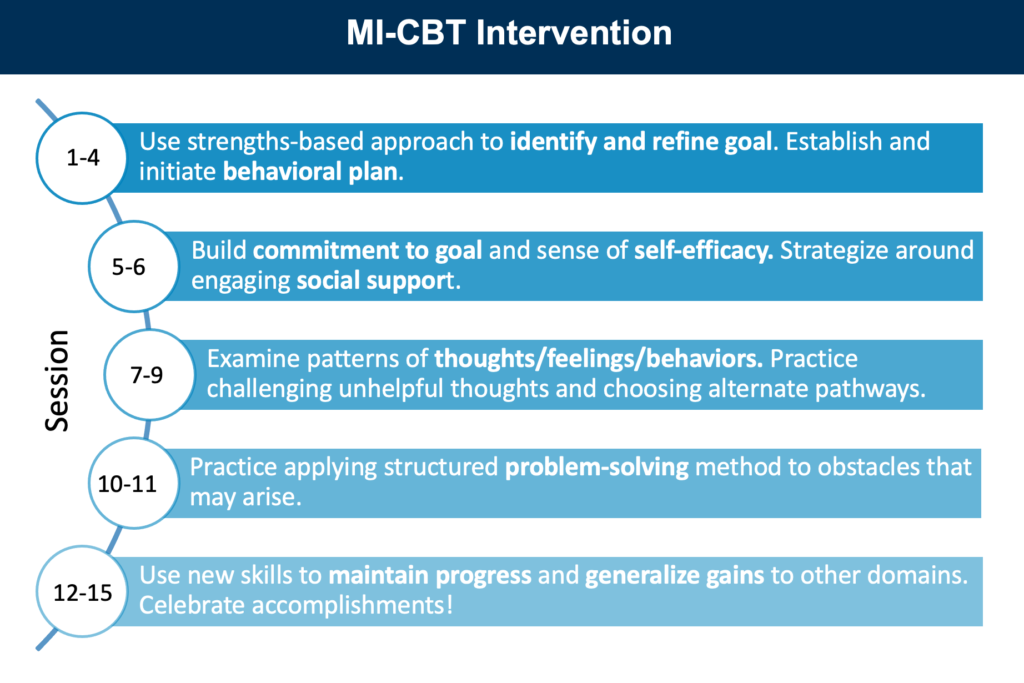What is Motivational Interviewing?
Motivational Interviewing (MI) is an evidence-based treatment known to be effective in promoting new behaviors and maintaining behavioral changes in a wide range of clinical populations.
MI blends principles drawn from motivational psychology, Rogerian therapy, and the “stages of change” model of recovery. Specifically, MI is a client-centered, collaborative approach designed to help individuals resolve ambivalence about making behavioral changes by strengthening their own motivation for, and commitment to, change.
Behavioral change is proposed to occur through a series of steps, and MI specifies therapeutic strategies to work with clients at their current level of readiness for change and help them progress toward higher levels of motivation, self-efficacy, and commitment to desired changes.
What is Cognitive Behavioral Therapy?
Cognitive Behavioral Therapy (CBT) is a structured, action-oriented approach to changing maladaptive thoughts and problematic behaviors that interfere with functioning. CBT specifies therapeutic strategies to identify unhelpful cognitions, challenge and modify those cognitions, and engage in behavioral activation exercises to enhance functioning.
In the CBT model, motivational deficits (as seen in schizophrenia and depression) are thought to be influenced by defeatist beliefs (e.g., “why bother trying if I won’t be perfect”). The MI-CBT Intervention emphasizes reducing defeatist beliefs to increase intrinsic motivation to sustain behavioral change and includes helpful strategies for addressing them.
Research findings from Drs. Reddy and Glynn have shown that participants’ cognitions (i.e., defeatist beliefs) improved with the MI-CBT strength-based recovery-oriented intervention shared with MI-CBT Guide.
Why Use MI + CBT Together?
The developers of MI, Miller & Rollnick, note that it was designed to build motivation for initial changes, and that once that initial motivation is established, it may be time to move to more action-oriented treatments such as CBT.
Increasing recognition of the centrality of motivation for effective CBT has led to a new wave of integrated MI-CBT treatments, which have shown benefits for various problems related to substance use, depression, anxiety, and physical health-related behaviors.
Moreover, the success of MI itself is known to be dose-dependent, with efficacy more than doubling when implemented in five or more sessions. The MI-CBT manual includes 12 weekly sessions in addition to three monthly booster sessions designed to maintain progress and generalize gains to other domains.
Progression of Sessions
Source: Felice Reddy, PhD, Shirley Glynn, PhD, and Megan Olsen, MSW. A New Integrated Motivational Interviewing + Cognitive Behavior Therapy (MI-CBT) Intervention to Enhance Community Integration in Recently-Housed Veterans. June 2023. PowerPoint Presentation to Veterans Affairs Rehabilitation Research & Development Service (VA RR&D).



